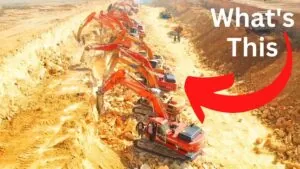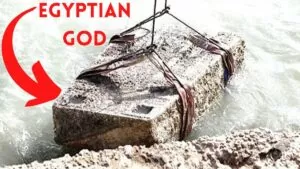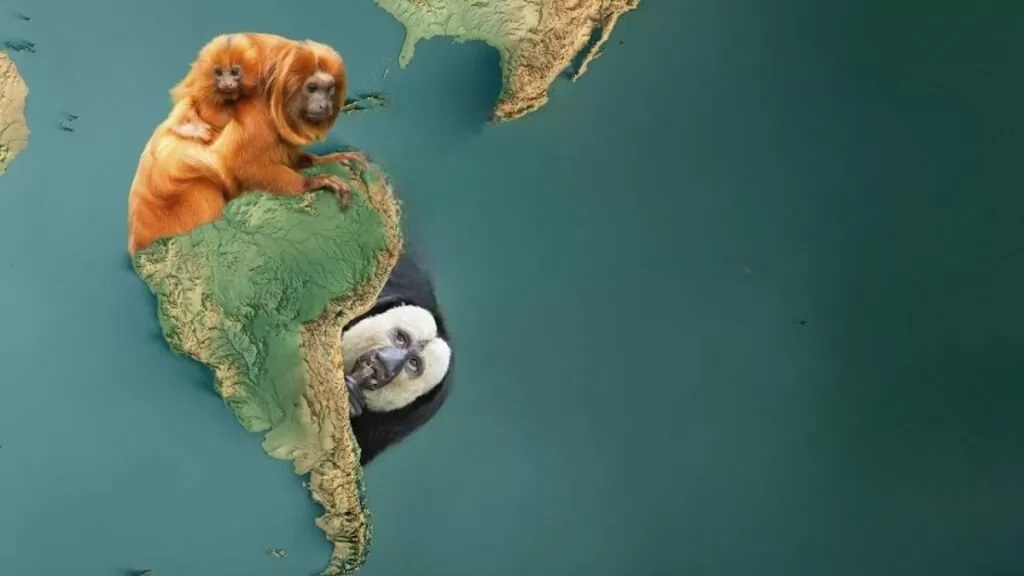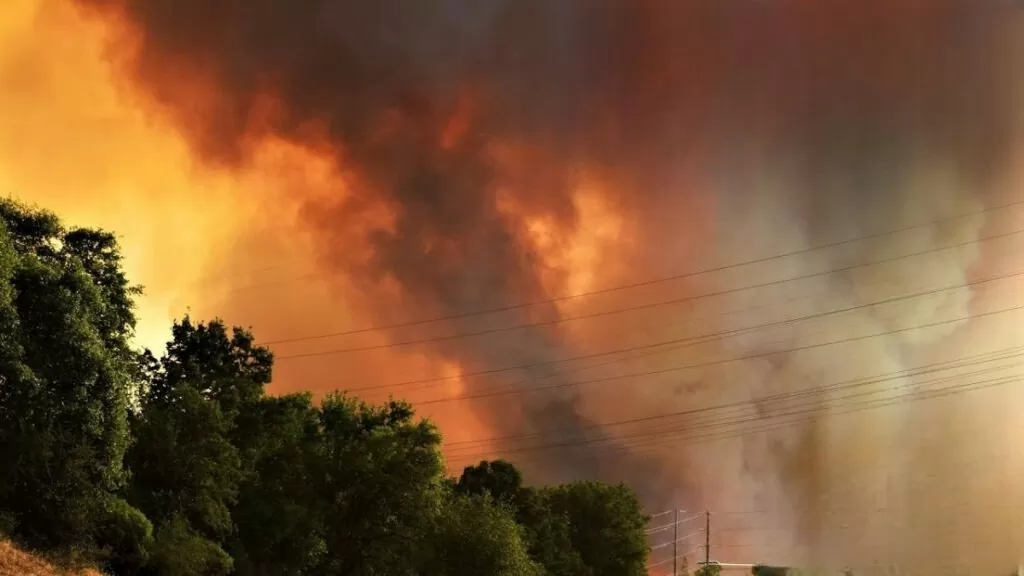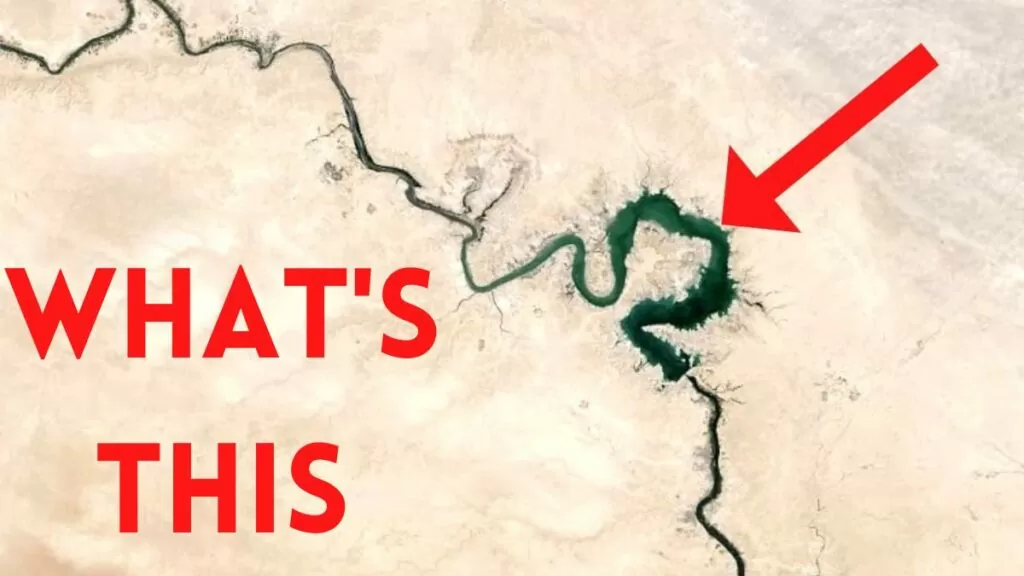
Preachers and self-described doomsayers have been predicting the date of the second coming ever since Jesus Christ said that only God knows when it will happen and that a new generation will be born.
“God’s final judgment is coming soon, probably in our lifetime, so get ready,” says even those who chastise date setters.
- Scientists Just Sent A Robot Inside The Chernobyl Reactor and Found This
- Scientists Just Found The Tomb Of Egyptian God Near River Nile
- Saudi Arabia Just SHOCKED American Scientists With This
“Prophecy interpreters have cited a new reason to believe the apocalypse is coming in recent weeks.
On prophecy websites, in bible study groups, and in churches, there have been heated debates.
But why are they all currently so worried?
What precisely is the cause of it?
We must tell you the terrifying tale of the Euphrates River in order for you to understand this.
You won’t want to miss out on this one, so stay with us until the very end!
Along the banks of the Euphrates, many civilizations have flourished, particularly in ancient times.
One of the most important civilizations in the region was the Mesopotamian empire.
The “fertile crescent” between the tigris and euphrates rivers was occupied by ancient Mesopotamia.
“At the moment, that part of the world is in Iraq.
The river is the longest in western Asia, measuring 1,740 miles.
It flows to the Persian Gulf from eastern Turkey as its source.
Along the way, it goes through Iraq, Syria, and Turkey.
Several distinct vegetation zones are traversed by the Euphrates River.
The majority of the euphrates basin’s landscapes have been significantly altered by human activity over millennia, but ancient flora remains.
Rainfall and melting snow make up the majority of the Euphrates’ water supply, which is why its peak flows occur in April and May.
Babylon is probably familiar to you!
In the past, this section of the river was a demonstration of babylon’s water management.
The great Babylonian Empire’s capital was in Babylon.
The city, which was founded more than 4,000 years ago as a small harbor on the Euphrates River, is now in Iraq. Its ruins can be found there.
Babylon developed into one of the ancient world’s most powerful cities under Hammurabi’s rule.
The borders of southwest Asia were redrawn at the treaty of Lausanne in 1923, following the partition of the ottoman empire following World War I.
The three riparian governments of the Euphrates—turkey at the time, France for its mandate in Syria, and the United Kingdom for its mandate in Iraq—were required by the treaty to negotiate a mutual agreement on how to use the river’s water and build any hydraulic infrastructure.
Turkey was required to report to Iraq any hydraulic changes made to the tigris-euphrates river system in accordance with a 1946 agreement, and Iraq was allowed to construct dams on Turkish territory to control the flow of the euphrates.
Turkey embarked on an ambitious plan to harness the waters of the tigris and euphrates for irrigation and hydroelectricity production as well as to provide economic stimulus to the country’s southeastern districts with the implementation of the southeastern anatolia project, or gap, in the 1970s.
Within a year of each other, Turkey and Syria constructed their first dams on the Euphrates, the Keban Dam and the Tabqa Dam. In 1975, reservoir filling began.
At the same time, there was a severe drought in the region, and the river flow toward Iraq dropped from 159 from 3 cubic kilometers in 1973 and in 1975, 4 cubic kilometers.
Iraq threatened to bomb the Tabqa Dam as a result of this, which sparked an international crisis.
Iraq and Syria ultimately reached an agreement through negotiations after Saudi Arabia and the Soviet Union intervened.
The ecology and society of each riparian nation have been profoundly affected by the construction of dams and irrigation systems on the Euphrates.
382 villages have been affected by dams built as part of the gap in the euphrates and tigris basins since then, and approximately 200,000 people have been relocated elsewhere.
However, the euphrates river’s water levels have dropped to dangerously low levels in recent years.
Turkey’s entry into Syrian territory at a rate of less than 200 cubic meters per second is less than half of what the two countries agreed upon in 1987.
A significant portion of the Euphrates River has dried up, as evidenced by recent photographs taken along its banks.
These areas, which were once essential to the survival of the region, are now deserts.
Images taken at the second-largest dam on the Euphrates River in Syria, the rojava dam (tishrin), show that the river’s waters have significantly decreased.
The Turkish state effectively stops the flow of water into Iraq and Syria because it has been using the euphrates as a weapon against the Syrians for years.
The 1987 agreement between the damascus and ankara governments stipulates that Turkey is obligated to provide Syria with 500 cubic meters of water per second.
The invading nation, on the other hand, is not adhering to the agreement and is currently only providing 200 cubic meters of water per second.
On the land, the negative effects of decreasing water levels are evident.
As a result of the lack of water, dam lakes in Syria have seen their water levels plummet, as has the region’s electrical output and supply.
Additionally, the amount of agricultural land on the banks of the Euphrates is decreasing.
Most importantly, it has become increasingly difficult to obtain safe drinking water.
The situation is causing serious health problems.
The autonomous administration of north and east Syria issued a warning that the Turkish state’s goal of lowering the level of the Euphrates River will cause humanitarian crises in the area, posing a threat to the lives of 9 million Syrians who live along the river.
Human rights groups and the international community have been urged by the dams administration of north and east Syria to put an end to Turkey’s provocative actions.
However, concerns have been expressed regarding the rapid drying of the old river!
Geological scientists have also been concerned by the falling water levels, making them unsure of what is causing this terrifying crisis.
Additionally, the United Nations has warned that Mediterranean heat waves will become increasingly severe.
Lake Assad is suffering as a result of this cycle, making Syria one of the countries most at risk, as measured by the global climate danger index.
People have assumed that this is related to the biblical book of revelation because there are only a few logical reasons why the river is drying up.
Surprisingly, fewer people find the development surprising because they believe it was inevitable given that the Bible mentions it.
The fact that the Bible’s prophecy of the end of the world is becoming a reality right before their eyes is the thing that scares people the most.
A lot of people think that important parts of the apocalyptic book of revelation show that Iraq is important in scenarios where the world will end.
In chapter 16 of the book of revelation, the euphrates river is mentioned.
The chapter says, “The sixth angel poured his bowl on the great river, the Euphrates;” In order to prepare the path for the kings from the east, its water was dried up.
The sixth angel poured his bowl on the Euphrates River, as stated in this scripture.
The contents of the bowl made the river dry out.
The majority of the world’s water has either been destroyed or polluted by previous bowl judgments.
This decision has nothing to do with degrading this water or banning its use.
Instead, it appears to be about removing a defensive wall to make room for the kings from the east who are coming to invade.
The Bible refers to the Euphrates five times as “the great river.”
It marked Israel’s inheritance’s eastern limit.
Israel was protected in part because the river was difficult to cross and a wilderness to the west separated them from the promised land of Canaan.
Before turning southeast and heading toward the Persian Gulf, it travels more than 2,000 miles toward Palestine.
In the first century, when the revelation was written, the euphrates separated the west from the east, and the kingdoms of China and India were to the east of it.
By diverting the Euphrates River, which ran through the city, Cyrus of Persia’s army conquered Babylon centuries earlier.
On the dry riverbed, they were able to march into Babylon and take the city.
The eastern invader will cross the Euphrates, march through Babylon, and enter Palestine during the great tribulation.
“Release the four angels who are bound at the great river Euphrates,” is what is said to the sixth angel with the trumpet in revelation 9:14.
“Exactly what does this imply?”
According to Exodus 27:2, this is the voice that John hears speaking from the four horns of the golden altar.
The trumpet-wielding sixth angel is instructed by this voice to free the four angels imprisoned at the euphrates, the ancient border between Israel and assyria.
We are reminded once more in Revelation that God is ultimately in charge of these events, permitting or declaring each one.
In the end times, evil will never be allowed to run amok.
We are aware that they are demons because they are described as “bound.”
Demons are fallen angels who are frequently held captive by “chains of gloomy darkness.” The Euphrates Valley, where these four angels are held captive, has a well-known connection to human sin.
The first homicide is likely to have been committed in the Euphrates Valley, close to the Garden of Eden.
Recently, it has been reported that strange voices come from the bottom of the drying river, possibly in an effort to justify this route.
People’s beliefs that the current events are a sign that Christ will return to conquer his foes and establish his heavenly kingdom are bolstered by this.
The pastor of the watchman ministries, Joseph Kabuleta, recently held the watcher’s conference this year on the premises of the Uma, where he urged Ugandans to keep an eye out for the end of the world.
“Today we are here to tell you things that are going to shock you,” Joseph Kabuleta began at the 2022 watchers’ conference on September 17.
“He did exactly that, unraveling the tangle of biblical prophecy and presenting unquestionable proof that a variety of end-time biblical prophecies came true in our time.
One of the most recent fulfilled end-time prophecies is the dead sea’s return to life.
The dead sea, also known as the saltiest sea on the planet, cannot support any marine life or plants or animals.
However, God told the prophet Ezekiel in Ezekiel 47 that the water would become clean and that living things would live in it.
In 2016, freshwater ponds with fish were discovered on its banks, bringing this prophecy to fruition.
The catastrophic conflict described in Ezekiel 38 and revelation 9 that would take place in the last days near the Euphrates River was further elaborated upon by Kabuleta.
The Bible says that countries along the euphrates river, such as Turkey, Syria, Iraq, Saudi Arabia, Kuwait, and Iran, as well as nations known as “gog and magog” (Russia, China, and the former Soviet Union), will join forces to form a military force of 200 million soldiers and fight israel.
According to Kabuleta, if Israel is overrun by a 200 million-strong army, it will have no choice but to use nuclear weapons or risk being wiped out of the world.
According to revelation 16:12, the euphrates river will dry up, allowing soldiers to freely march in this battle.
This year also saw the fulfillment of this prophecy, as the river dried up.
Experts believe that the river will disappear completely by 2040 if nothing is done.
The entire world will join the effort to reach a temporary peace agreement between the warring parties as a result of the unprecedented destruction that war has caused.
According to Kabuleta, the seven-year peace treaty mentioned in Daniel 9:27 will be signed as a result.
The Bible says that human government will end after those seven years and Jesus will return.
People have begun to voice their worries, stating that they had never anticipated that the revelations would actually make sense.
While biblical prophecy is the most convincing theory regarding the river, other hypotheses link current events along the Euphrates to political ambitions and climate change.
What do you think is happening?
Are the prophecies coming true, or is the river drying up because of climate change?
Let us know in the comments.
